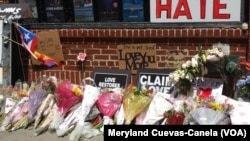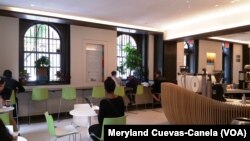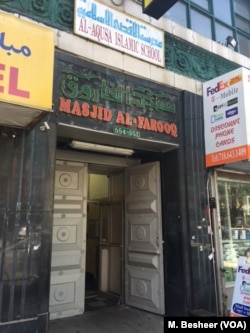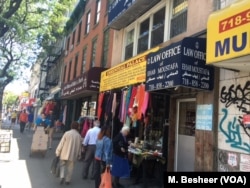Bouquets of flowers and police surrounded the Stonewall Inn, a gay rights landmark in New York City. In June 1969, LGBT patrons of the inn clashed with New York City police, leading to a wave of equal rights demonstrations. But since the weekend's slaughter at a gay nightclub in Orlando, Florida, that left 49 people dead, New York’s finest have been on the alert to protect LGBT sites in the city.
The gay community came together for vigils at the renowned watering hole. Signs proclaiming gay rights and denouncing anti-gay bashing were in the Stonewall's front window; the news media clogged the sidewalk outside.
Janet Sarno, a resident of Greenwich Village, described the Orlando horror as a “little step back.” She added, “I found out it was a gay bar, my heart sunk because I have many gay friends that I love dearly. I felt we had made great strides in advancing their cause.”
Her friend, Judy McMahon of Binghamton in upstate New York, said, “There were so many warning signs about the shooter, Omar Mateen, about how his mind was working. People who were with him alerted other people, and I don’t know what the answer is to stop this from happening. But there has to be a way.”
Mateen was born in New York City. He had posted selfies on MySpace that showed him posing in a golf shirt and T-shirt emblazoned with NYPD logos.
On Monday, the LGBT Community Center in New York City — the heartbeat of New York’s gay community — was also flanked by police. Inside, all was calm, as was executive director Glennda Testone. But Sunday was a bad day, she said: “I was devastated. It was a very sad, difficult day.”
The center provides social and medical information to New York’s gay community: Testone calls it a “safe base” for the gay community. “I think the bottom line is, we will continue, we will be there for our brothers and sisters in Orlando and we’ll continue to be proud of who we are,” she said.
NY Muslims fear increased surveillance
“Any good Muslim knows you’re not supposed to do what this guy did,” Ahmed, 60, an African-born Muslim said Monday on his way into afternoon prayers at the Al-Farooq Mosque in downtown Brooklyn. “A good Muslim knows you shouldn’t kill somebody.”
Bangladeshi immigrant Mohammed Yusuf, 60, was also on his way to afternoon prayers. He said every community has “some bad people,” but the “Quran says you can’t kill people.” He expressed a wish for all communities to be tolerant of one another.
New York City has a vibrant Muslim community of about 840,000 people, with roots in every corner of the world.
A clerk in a traditional Muslim robe at a store next door to the mosque expressed confidence New Yorkers would understand that what happened in Orlando was the action of one disturbed person and not a reflection on Muslims as a whole.
But Muslim advocacy groups also worried that the Orlando attack, happening in the current highly charged political climate, could lead to more surveillance and restrictions on Muslims’ civil liberties.
Afaf Nasher, executive director of the New York chapter of the Council on American-Islamic Relations, or CAIR, the country’s largest Muslim civil liberties and advocacy organization, told VOA the level of surveillance of New York Muslims is already high, which she said is a violation of their civil rights and liberties.
“No one should be surveilled because of their religious affiliation,” she said. “It is something that is discriminatory; it’s unconstitutional and unwarranted.”
Banding together against Trump
Muslim activists worried that angry words from public figures like presumptive Republican presidential nominee Donald Trump could stoke a backlash against them.
“We are concerned, not only about retaliation against the Muslim community, but about an escalation of attacks against the Muslim community, because those attacks have been ongoing, especially in the climate that people like [Donald] Trump have created,” said Tony Murphy, with the International Action Center in New York.
He said his organization, LGBT groups and others planned to protest in front of Trump Tower, the Manhattan headquarters of the Trump campaign, as well as the New York-based billionaire’s home, to denounce his repeated calls for banning Muslims.
“[Trump] is adding oil to the fire,” said an older lady in a blue headscarf who was headed to afternoon prayers at the Brooklyn mosque with her husband.
But Dawud, 47, an African-American convert to Islam who was shopping for a new skull cap at the Treasure Islam clothing shop nearby, said he thought Trump’s anti-Muslim rhetoric was “more hype than anything,” and probably intended to win him votes among white, Christian evangelicals.







